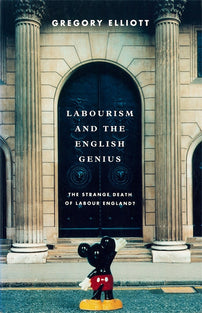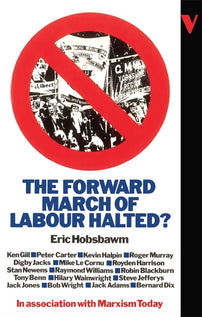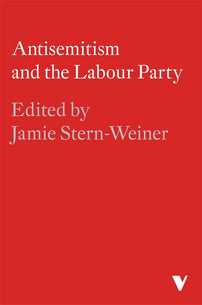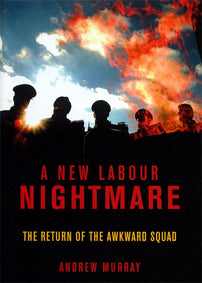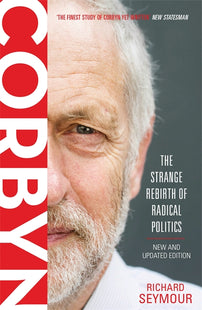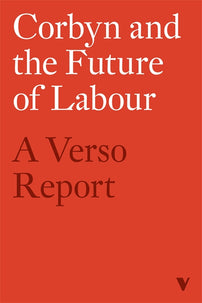Living the nightmare
In the run up to Thursday's general election, Jeremy Corbyn's popular agenda of modest social-democratic reforms was met with an unrelenting tide of hostility, from the both the British media and members of the political class. In this article Lorna Finlayson analyses the conditions of the defeat, and the egregious dereliction of duty of the media.

The result, in the end, was about as bad as it possibly could have been. It wasn’t a bolt from the blue, but the very nightmare scenario we hoped would not come to pass and which we fought to avert. The fear, now fulfilled, was that a bloated nationalism would destroy the first opportunity in decades to restore a measure of humanity to British society; that the fury and mistrust born of a politics that has treated people and truth alike with utter contempt would rebound to the benefit of those who have inflicted the injury – and who are now empowered to take their violence to a new level. The fear was that the election of 2019 would above all be an election about Brexit, despite efforts to impose another meaning on it, and that the left could not beat the right in a battle fought on that terrain. That Johnson, like Trump, could stoop to virtually any depth and still ride to power because he would be seen as a rule-breaker who would ‘get things done’.
The fact that all this has come to pass does not mean that those who believed in the possibility of a different outcome were wrong. That it didn’t happen doesn’t mean it couldn’t have. It also does not mean that it was foolish, given the available evidence, to hope for something better – even much better – than what transpired. It was not foolish to pay little heed to the polls, given all we know about their methodologies and their recent track record (in the end, they were as misleading in this election as in last, albeit in the opposite direction). It was clear that the obstacles – above all, the unprecedented degree of effort expended by the media and political class to ensure the final demise of the Corbyn project – were monumental. But it was also clear to anyone involved that the movement around the Labour Party in 2019 was surpassing the 2017 effort in scale, sophistication and commitment. We knew that almost twice as many new voters registered this time around as last time, and that these voters overwhelmingly supported Labour. We knew that the Remain vote was coalescing around Labour at the expense of the Lib Dems – albeit, as it turned out, not quite enough to prevent a catastrophic splitting of the vote in marginal seats. The anecdotal evidence from canvassing was mixed, just as it had been in 2017, and not obviously or universally discouraging. As Johnson lurched through a series of increasingly embarrassing encounters with reality – the words of vitriol from the father of a victim of terrorism, the boy on the hospital floor, the fridge – it had seemed to some that the mask was slipping. By the end of the campaign, my own feeling was one of almost complete agnosticism: it could well go horribly, horribly badly; or we could, conceivably, be in for a different and far more pleasant kind of shock. When reports came in of long queues outside polling stations, it was hard not to hold onto hope. Hope of another ‘youthquake’. Hope that the 48% were coming out of the woodwork. Hope of a triumph of compassion over cruelty. Hope that the media had overreached, that their power had waned, that perhaps – just perhaps – the intensity of their assaults and of their insistence on the inevitability of failure were signs not of doom but of defensiveness, a last-ditch attempt to establish a self-fulfilling prophecy.
But if Corbyn’s mission was not a strictly impossible one, it was always all too nearly so. His popular agenda of modest social-democratic reforms was met with an unrelenting tide of media hostility, of orchestrated attacks by those concerned to protect the state of Israel from even relatively mild forms of scrutiny, of continual attempts by self-conceived ‘moderates’ from within his own party to undermine his leadership, even at the cost of electoral defeat. Five weeks of canvassing cannot easily compete with a year-round campaign by a political and media establishment passionately invested in the status quo. The Conservative-created fiasco of Brexit was not so much a final straw as a final elephant.
In truth, Thursday’s result tells us little that we didn’t know, or at least suspect, already. The injunction to ‘learn lessons’ from defeat, repeated in the inevitable hot takes, usually masks a reassertion of pre-existing convictions. The centrists will say that Labour lost because it was too left-wing. The Lexiters will say, with some apparent plausibility, that Labour lost because it caved to pressure to embrace a second referendum. The Remainers will say that the party, and its leader, should have put up a better and more confident fight to counter the nationalist narrative. The resulting tension is set to produce a major split within a weakened and reeling Labour left. But while this election is reflexively and insistently presented in the media as Labour’s loss, it was, still more than that, a Conservative triumph. It hardly mattered what Boris Johnson did or said. The ranks closed. Every threat was swiftly neutralised, not by the exercise of any skill or ingenuity on Johnson’s part, but by the press, by the BBC, by Channel 4. They did not report on the protests that followed Johnson wherever he went – as they surely would have, had Corbyn been the target – any more than they covered the huge rallies that followed Corbyn. They had not taken Labour seriously in 2017. This time, they were taking no chances.
The single most egregious dereliction of the media’s duty to inform came in response to Corbyn’s unveiling of the unredacted transcripts of trade talks between UK and US officials, detailing proposals for ‘full market access’ to NHS products and services for American drug companies. Corbyn was trying to tell people something that could save their lives. The vast majority of people in Britain are opposed to privatisation in the NHS and in favour of a fully public health service. Polls have reported health as the single most important issue to voters – still more important than Brexit. Yet the story was brushed aside, dismissed as an irresponsible exaggeration or ‘conspiracy theory’, even offered up on BBC’s Newsnight – alongside the infamous Lib Dem bar charts – as an example of a cross-political phenomenon of dishonesty among politicians. After all, weren’t these just innocent ‘scoping talks’? Had anything been signed off yet? Surely, no government would risk doing something so unpopular as selling our NHS. No matter that Boris Johnson is on record as having said that people would value healthcare more if they had to pay for it, that the NHS is a monopolistic structure that should be broken up. No matter that he is a notorious liar. No matter that his party has privatised large chunks of the NHS already. Does it actually say ‘NHS for sale’ anywhere in these documents? Well? Does it? The treatment of this issue alone has likely condemned a great many people to death.
It is difficult to hope now. We knew the system was closed. It was more closed than we knew.
Lorna Finlayson teaches philosophy at the University of Essex.
[book-strip index="1" style="display"]
